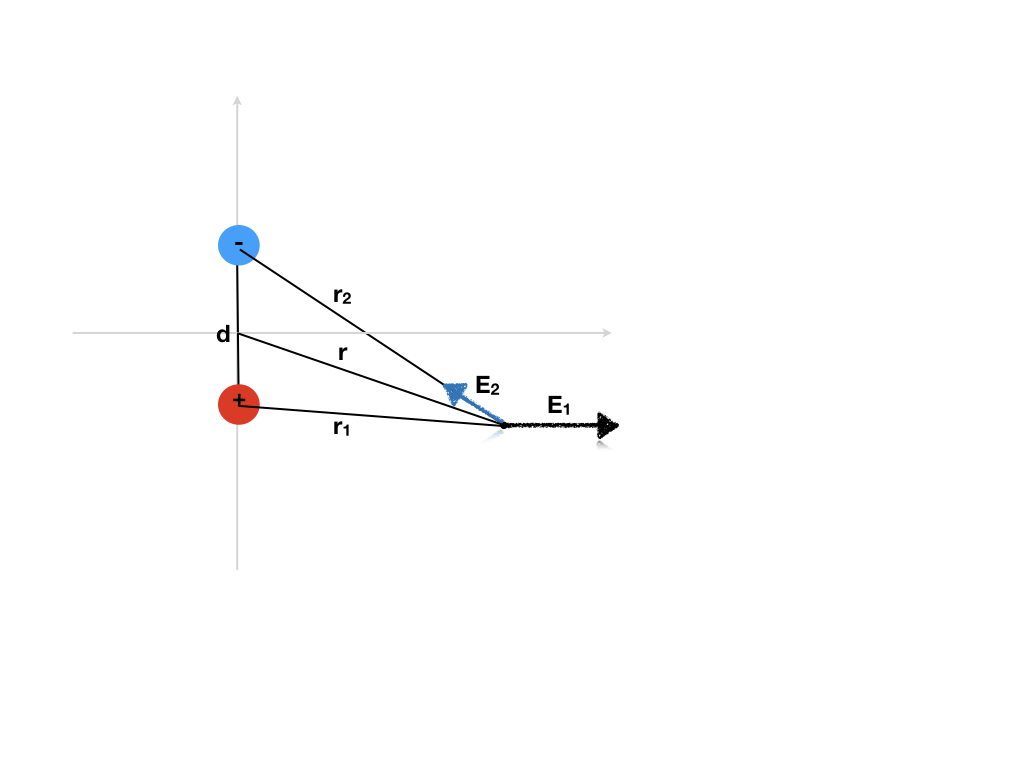Question #7bc46
1 Answer
It's not always. If the distance at which the electric field or potential is evaluated is much bigger than the length of the dipole, then yes.
Explanation:

The dipole field at a point located at
Given q and d, if you know
However, for us mortal, it's more convenient to assign
and
where
This transformation is particular useful when r >> d, because at that distance,
Hence, near the dipole, the field is fact not calculated by the distance from the center, but by distance from both charges. At distance far way, the distance from the center of the dipole is a good approximation for calculating the field or potential.

